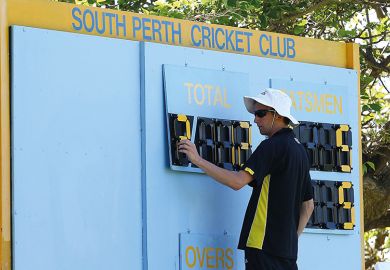The bill authorising the Australian government to cap overseas enrolments imposes an “impossibly high barrier to entry” for private colleges hoping to specialise in international education, according to the representative body for non-government institutions.
Independent Higher Education Australia (IHEA) said the legislation included a new provision requiring colleges to cater to domestic students for two years before gaining approval to enrol foreigners.
Chief executive Peter Hendy said this was a tall order, given an existing regulatory practice preventing domestic students from accessing government-backed loans if they studied at institutions of less than three years’ standing.
Dr Hendy said new independent colleges stood little chance of competing with established institutions offering income-contingent loans and authorised to enrol overseas students. “This Catch-22 situation will make the operations of new independent providers unsustainable. The arrangement is clearly discriminatory [and] anti-competitive.”
He said barriers to entry stifled entrepreneurship and innovation. “As the Productivity Commission has consistently argued, one of the key conditions for promoting productivity growth is freedom for new players to enter the market.
“The international education sector is a A$48 billion [£24 billion] industry that was responsible for more than half of Australia’s recorded economic growth in 2023. At a time when Australia needs to be fostering productivity-enhancing reforms, the government is instead erecting impossible barriers to new entrants in this vital export market.”
Private higher education colleges have long protested the lack of a level playing field. Few attract teaching grants. Many can offer their students government-backed loans, but they carry a 20 per cent administration fee that public university students are spared.
Dr Hendy also took aim at vice-chancellors who have advocated a uniform limit on international enrolments – 35 per cent, for example – as an alternative to the institutional caps proposed by the government.
He said this was a “self-serving” proposal from public universities that would be unaffected by any such limit, because the international proportion of their enrolments had never reached 35 per cent.
But many private institutions catered solely for international students and a 35 per cent cap would destroy their business model, he said.
“Public universities…were created to primarily teach domestic students. That should be their priority. If they want a cap on public universities that is their concern, but they should leave private providers out.”
Register to continue
Why register?
- Registration is free and only takes a moment
- Once registered, you can read 3 articles a month
- Sign up for our newsletter
Subscribe
Or subscribe for unlimited access to:
- Unlimited access to news, views, insights & reviews
- Digital editions
- Digital access to THE’s university and college rankings analysis
Already registered or a current subscriber?








